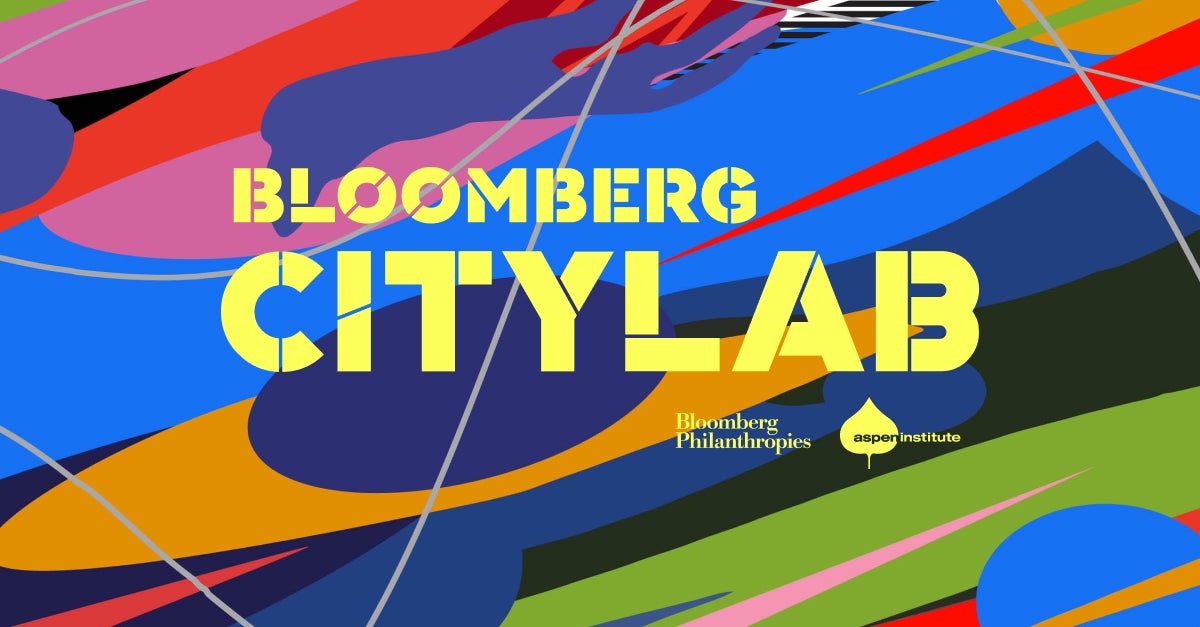“As a city mayor, you have the responsibility of the day-to-day operations for people in your city right now,” Washington, DC, Mayor Muriel Bowser said. “But you’re always thinking about how you will get ready for growth—through systems, infrastructure, people. We have to be prepared for progress.” Bowser joined a group of 40 mayors and more than 500 participants from around the globe for CityLab 2016, the Aspen Institute’s fourth annual two-day summit in partnership with The Atlantic and Bloomberg Philanthropies.
With its perennial emphasis on sharing best practices, CityLab embraced themes that included city leadership amid security threats, investment in aging infrastructure, evictions and the homelessness crisis, the role of refugees in urban revitalization, and the coming emergence of driverless cars.
After previous convenings in New York, Los Angeles, and London, downtown Miami served as campus to CityLab this year. Participants ventured out into the community, including the Wynwood Arts District, where local business and creative communities have transformed a once-derelict warehouse district into a vibrant cultural destination, and Miami Beach, for a look at the city’s climate-change and flood-mitigation efforts, including pumps, elevated streets, and sand-dune preservation. Guests also visited transportation hub MiamiCentral for an exclusive overview of both the Miami Worldcenter site—a 27-acre project featuring retail, residential, and commercial buildings in the heart of downtown—and Brightline, the first and only privately funded rail in the United States, connecting Miami and Orlando.
At CityLabs past, such outings might only have necessitated a wide-brimmed hat and some strong sunscreen. But this year, participants were armed with another travel must: bug spray. As Miami battles the spread of the Zika virus, other cities in the United States and Latin America are taking note.
Speaking with The Atlantic’s new editor in chief, Jeffrey Goldberg, at the close of CityLab, US Centers for Disease Control and Prevention Director Tom Frieden emphasized that cities have to invest in public health as a preemptive measure for local health concerns and to stop the spread of Zika nationally. “A weak link anywhere is a risk to us everywhere,” Frieden said.
The importance of cities’ capacity for resilience surfaced again and again in conversations, as CityLab speakers and guests grappled with protecting public health, the challenge of inequality, and living with a changing climate. “We’re having to prioritize in a reactionary way in response to a public-health crisis,” Mayor Karen Weaver of Flint, Michigan, said. “I hope that people are learning from Flint and that they don’t do things the way we’ve had to do them.” Weaver has been battling for clean water for Flint citizens since taking office in November 2015.
Perhaps most powerfully, Orlando Mayor Buddy Dyer took the CityLab stage just months after the worst mass shooting in US history devastated his city. He shared the power of community in responding to tragedies. “Part of the reason we were able to bounce back,” Dyer said, “was the love that came from all over the country, and all over the world. We saw the London Bridge lit up, the Eiffel Tower lit up in rainbow colors. We just felt that love and support.”
